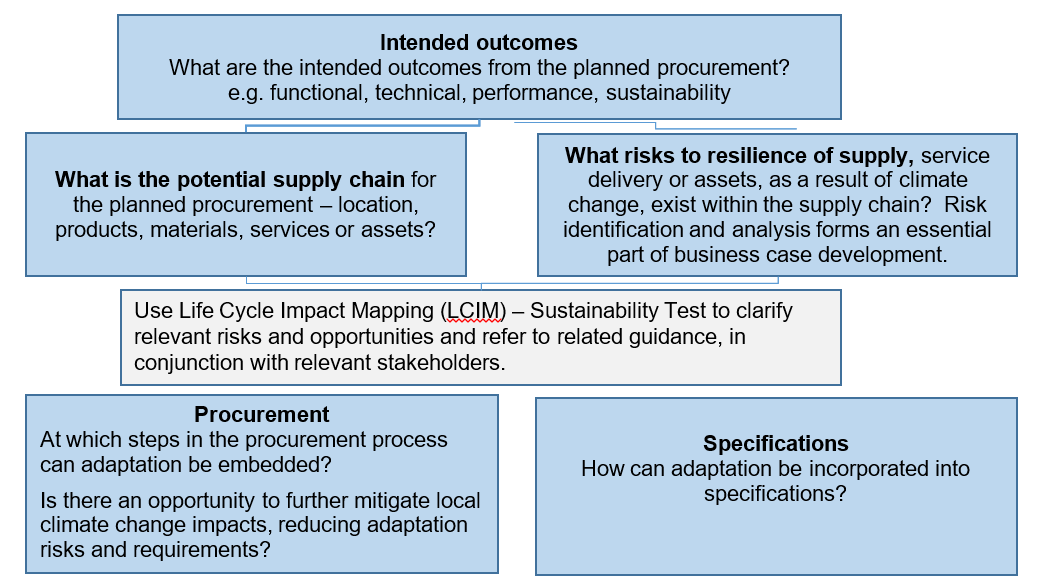As the Procurement Journey emphasises the most positive outcomes, including those relating to adaptation to climate change, will arise from early consideration, involving key stakeholders, of intended outcomes and the optimum solution(s).
A. Define need and collaborate

B. Market Engagement and Collaboration
Mature dialogue - allow sufficient time for mature dialogue with the market early to set out your climate change adaptation objectives and determine the nature of the potential market. These may for example include buildings/ major refurbishments/ infrastructure that are more climate change resilient, facilities management contracts better consider the whole life costs of operation and maintenance; physical risks to users of services may also be reduced. This may relate to site management and sometimes be outside of scope of the contract, but may include requirement to demonstrate how the contractor is able to provide relevant services remotely and/or ensure access to relevant equipment, products and materials. This signals your intent to the market (as well as internal stakeholders), and to provide a basis for measuring and managing overall performance - including through the use of Prior Information Notices (PIN)/ Request for Information (RFI)/ Market events.
Supply chain risks – Heightened focus on supply chain risk management includes the risks that climate change represents to global supply, including food production and availability, health and safety, working conditions and wellbeing of workers in supply chains, ports and transport infrastructure, factory production, connectivity and telecommunications, market prices and costs. Reputational risks also apply, according to how public bodies and supply chains deal with such issues. The extent to which these and other Climate Change risks impact on supplies and services should be considered by those commissioning and procuring.
This also links to issues relating to the security of supply of various critical materials (more information is included in the Waste and Resources guidance. The transition to a Circular Economy, reducing reliance on, largely imported, raw materials and risk management regarding supply chain resilience can impact local supply. This may include ‘Onshoring’ of supplies and the public sector has an important role in working with suppliers to manage such risks and capture relevant opportunities for local jobs, skills and training.
Capability - how capable is the market in delivering these ambitions? The maturity of the market regarding ensuring resilient supply and services may vary across categories e.g. major construction suppliers can be relatively mature in their approach while other organisations and sectors may be less mature.
The following procurement guidance clarifies relevant practice throughout the procurement cycle; this is reflective of the Procurement Journey, highlighting specific issues relating to embodied carbon.
Within the Annex to this guidance are clauses that you may wish to use or tailor to suit particular procurements.
Return to Legal & Policy Context - Climate Change Obligations
Continue to Pre-Contract Notification